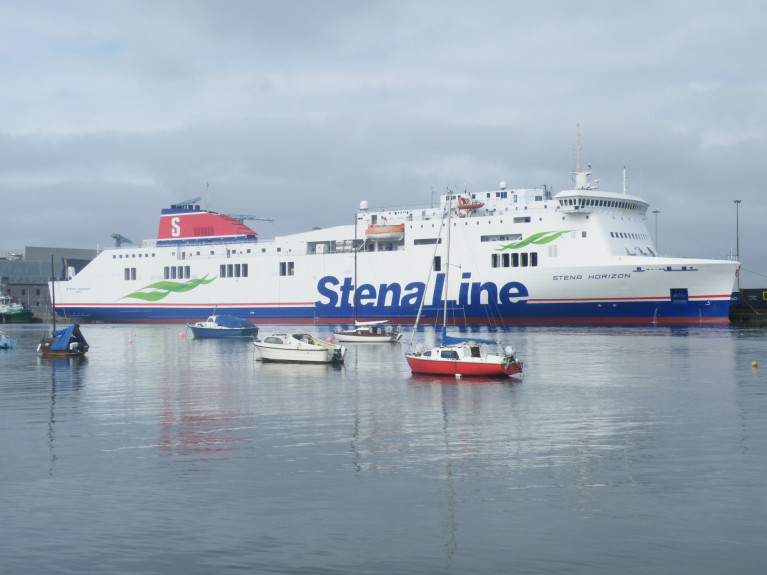Ferry operator Stena Line has placed a quarter if its dock workers at Holyhead on furlough as Covid and Brexit hit demand for services.
The ferry giant, reports NorthWalesLive, has seen a slump in trade since January 1 due to several factors.
This includes the continued impact of the pandemic on passenger numbers, trade disruption due to Brexit and stockpiling in December.
It has seen some weekend services cancelled and next week Stena Estrid (see related story) will be replaced by the smaller Stena Horizon on the route.
This has sparked fears over the long term impact on Holyhead port with a surge in trade on direct Ireland/EU mainland services and a switch by some operators to direct Belfast routes for goods to and from Northern Ireland.
Port officials remain calm about the situation with confidence that these are short term impacts exacerbated by the pandemic.
But they have taken the decision to temporarily reduce staff numbers dockside with a 25% cut in port services operators.
These workers - who help to dock vessels and the ferries to load and unload - have been placed on the UK Government's Job Retention Scheme.
Further reading here on the reality of such developments.


























































